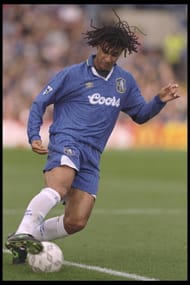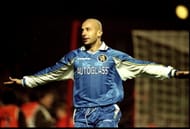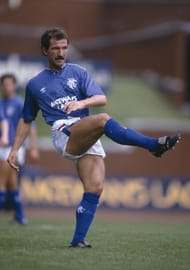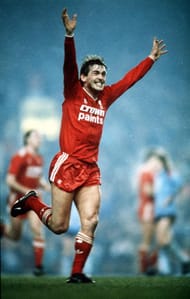Player Coaches: The ultimate poisoned chalice, if there was one. Being either a player or a manager is pressure enough; donning the dual role of a player-coach would be like a pressure cooker.
The number of player managers in the game of football today has dwindled from the heydays of the 80s and 90s when clubs decided to experiment with the concept of a leader both on and off the pitch.
More often than not, most player-manager reigns ended in ignominy, but there were a few golden exceptions to that rule. Here we take a look at some of the top player managers to have graced a football pitch.
5. Alan Curbishley
The former Charlton Athletic fan favourite began his playing career with West Ham United before eventually ending it at Charlton Athletic.
In his second stint with Charlton in 1991, he became joint manager with Steve Gritt while still playing for the club. His playing career came to an end in 1993.
He took sole command of the club in 1995 and reversed the promotion of the struggling South East London outfit, masterminding their return to top flight football.
During his reign, Charlton finished in 7th position in the 2003-2004 season. He was a firm fan favourite right up until he moved to take over the mantle at another one of his former clubs (West Ham United). There, he led a great escape of sorts which saw the East London Club avoid relegation by the narrowest of margins.
Though he never won a top flight trophy in his time as manager of Charlton Athletic (won two playoff finals), he still cemented his place as a successful manager at a small club.
Having started his management career as a player-coach, it is obvious how his experienced helped him in donning the supreme role of manager in his later seasons with Charlton Athletic.
4. Ruud Gullit
One of the most colourful personalities to have ever graced a football pitch, the enigmatic Dutch man Rudd Gullit occupies the 4th position in this list.
The proponent of ‘sexy football’, Gullit was appointed as player-coach at Chelsea in 1996 following the departure of Glenn Hoddle. His arrival ushered in a new era for Chelsea as in his first season in charge of this dual role, he led the club to an FA Cup triumph and with that, helped break a 26-year-old trophy drought for the West London club.
In doing so, he became the first non-British manager to win a major trophy in England. His arrogance though was said to be his downfall as he was sacked in just his second season in charge when Chelsea were second in the Premiership and progressing well in the cup competitions.
His last appearance as a Chelsea player was against Arsenal in the League cup semifinal. His time at Chelsea can be called a success even with his premature sacking.
Apart from breaking the trophy duck, he also brought in players of the quality of Gianfranco Zola and Gianluca Vialli into the club. The latter would be chosen as his successor as player-coach and would also enjoy a fruitful spell in charge.
3. Gianluca Vialli
The man who replaced Gullit as player-coach of Chelsea, the Italian striker would go on to become one of Chelsea’s most successful managers before the Roman revolution of 2003.
Vialli was brought in by Gullit after having led Juventus to their second European Cup. In his time as player-coach, he won a European Cup Winner’s Cup, League Cup and a UEFA Super Cup.
The club also progressed to the quarter-final of the Champions League during his reign. He retired as a player in 1999, having scored 40 goals in 83 appearances, no mean feat for a 33-year-old striker.
He was eventually given the boot in the 2000-2001 season after having fallen out with many of his star players. But he is always remembered fondly by the Chelsea faithful.
2. Graeme Souness
If there was ever one word to describe Graeme Souness, it would be ‘winner’.
The tough tackling mustachioed Scot is one of the most underrated legends in the game of football. He won a trophy at almost every club he played or managed and has achieved cult status at Liverpool and even Galatasaray, thanks to his flag planting exploits at the home of Gala’s most hated enemy, Fenerbache.
The Scot was appointed player-coach of Glasgow Rangers in 1986. His arrival heralded a revolution of sorts for the Rangers who had been left adrift by hated rivals Celtic.
His time there was significant in that the decisions that he took changed the face of Scottish football forever. His signing of Mo Johnston in 1989 was hailed as one of the most significant decisions ever. Johnston was a former Celtic player and Catholic. Rangers, being a protestant club, had an unwritten rule since their inception against signing Catholic players. Though a few exceptions were there, Mo Johnston was the first public Catholic signing in Rangers’ history.
The transfer divided the Rangers fans and was much debated. Looking back though, it was a remarkably astute decision as this signing heralded a new era for Rangers where more Catholic player signings were made, a fact that helped Rangers, since their refusal to sign them had seen many a talented Catholic player joining Celtic and flourishing.
Souness also laid the blueprint of the 9-in-a-row league title wins for Rangers as in his time in charge, the club won the first 3 of those eventual 9 league titles.
He made 49 appearances for Rangers. His time at Rangers was marred by many a controversy but let that not take the gloss of a fine job he did as player-coach there.
1. Kenny Dalglish
Who else but King Kenny could occupy the top of this list of top player-coaches of all time. Dalglish’s name is spoken in almost reverential tones at Anfield due to his exploits as both player and manager of the club.
Though his second stint in charge of the club was a largely forgettable one, it his first stint that cemented his place in Liverpool folklore.
Dalglish had joined the club in 1977 from Celtic and took over the dual role of a player-coach in 1985 following Joe Fagan’s resignation.
In his first season in charge, Liverpool went on to do the double. In 1988, he led Liverpool to another league title. In 1989, he missed out on a second double, having beaten Everton in the FA Cup final, thanks to Arsenal’s famous last minute result at Anfield that secured the league title for the Gunners.
The following season he again led Liverpool to yet another league title win, their third under his reign. In 1990, he hung up his playing boots for Liverpool and would subsequently leave as manager too in 1991 citing health reasons.
During his time at the club, the Scot made some astute buys in the form of John Barnes, John Aldridge and Peter Beardsley. His handling of the Hillsborough disaster and its aftermath came in for much praise from one and all.
Liverpool’s quintessential number 7 and he man who shook the Kop, Kenny Dalglish rounds off this list of top player-coaches of all time.





